Filter by

information Systems Foundations : Constructing and Criticising
Information systems
- Edition
- -
- ISBN/ISSN
- 9781920942205
- Collation
- -
- Series Title
- -
- Call Number
- 650

The Information Systems Academic Discipline in Australia
This book represents the second phase of a multi-method, multi-study of the ‘Information Systems Academic Discipline in Australia’. Drawing on Whitley’s Theory of Scientific Change, the study analysed the degree of ‘professionalisation’ of the Information Systems Discipline, the overarching research question being ‘To what extent is Information Systems a distinct and mature discipli…
- Edition
- -
- ISBN/ISSN
- 9781921313943
- Collation
- -
- Series Title
- -
- Call Number
- 650
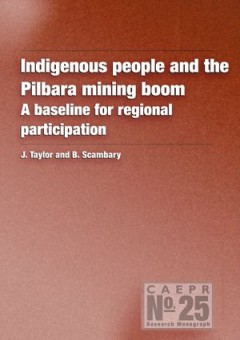
Indigenous people and the Pilbara mining boom : A baseline for regional parti…
Economic conditions; Aboriginal australians; Western australia
- Edition
- -
- ISBN/ISSN
- 9781920942540
- Collation
- -
- Series Title
- -
- Call Number
- 650
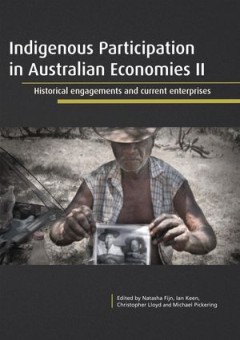
Indigenous Participation in Australian Economies II : Historical engagements …
This is the second volume to emerge from a project on Indigenous participation in the Australian economy, funded by an Australian Research Council (ARC) Linkage Grant, and involving the cooperation of the School of Archaeology and Anthropology at The Australian National University and the National Museum of Australia. The Chief Investigators were Ian Keen, Chris Lloyd, Anthony Redmond, the Part…
- Edition
- -
- ISBN/ISSN
- 9781921862830
- Collation
- -
- Series Title
- -
- Call Number
- 650
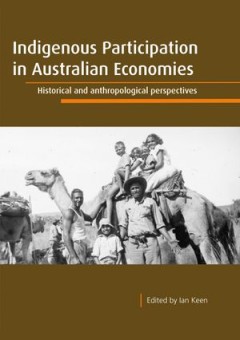
Indigenous participation in Australian economies : Historical and anthropolog…
This volume seeks to contribute to the body of anthropological and historical studies of Indigenous participation in the Australian colonial and post colonial economy. It arises out of a panel on this topic at the annual conference of the Australian Anthropological Society, held jointly with the British and New Zealand anthropological associations in Auckland in December 2008. The panel was org…
- Edition
- -
- ISBN/ISSN
- 9781921666872
- Collation
- -
- Series Title
- -
- Call Number
- 650

Touring Pacific Cultures
"Tourism is vital to the economies of most Pacific nations and as such is an important site for the meaningful production of shared and disputed cultural values and practices. This is especially the case when tourism intersects with other important arenas for cultural production, both directly and indirectly. Touring Pacific Cultures captures the central importance of tourism to the visual, mat…
- Edition
- -
- ISBN/ISSN
- 9781921862441
- Collation
- -
- Series Title
- -
- Call Number
- -
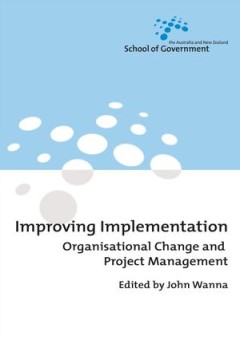
Improving Implementation : Organisational Change and Project Management
The business of government is necessarily diverse, changing and of considerable scale. A focus on improving the implementation of government programs and initiatives is important because the community expects the Government to deliver on its policies, as does the Government. The papers included in this collection address numerous aspects of improving implementation. They were initially presente…
- Edition
- -
- ISBN/ISSN
- 9781921313028
- Collation
- -
- Series Title
- -
- Call Number
- 650
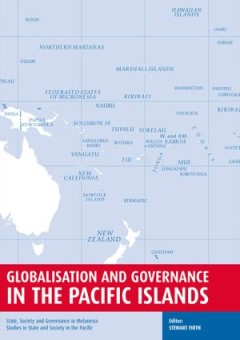
Globalisation and Governance in the Pacific Islands : State, Society and Gove…
The Pacific Islands are feeling the effects of globalisation. Free trade in sugar and garments is threatening two of Fiji’s key industries. At the same time other opportunities are emerging. Labour migration is growing in importance, and Pacific governments are calling for more access to Australia’s labour market. Fiji has joined Samoa, Tonga, Tuvalu and Kiribati as a remittance economy, wi…
- Edition
- -
- ISBN/ISSN
- 9781920942984
- Collation
- -
- Series Title
- -
- Call Number
- 650

The Future of Audit : Keeping Capital Markets Efficient
At a time when increased independence requirements for auditors, legal backing for auditing standards, and increased audit documentation requirements have occurred, this book examines key issues in the market for audit services in Australia. It investigates issues including: the understandability of audit and the state of the audit expectations gap; auditors’ business acumen and industry expe…
- Edition
- -
- ISBN/ISSN
- 9781921666513
- Collation
- -
- Series Title
- -
- Call Number
- 650
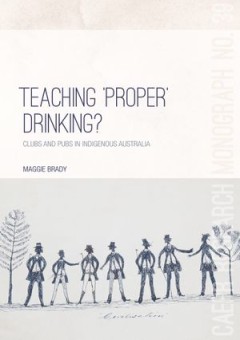
Teaching ‘Proper’ Drinking? Clubs and pubs in Indigenous Australia
"In Teaching ‘Proper’ Drinking?, the author brings together three fields of scholarship: socio-historical studies of alcohol, Australian Indigenous policy history and social enterprise studies. The case studies in the book offer the first detailed surveys of efforts to teach responsible drinking practices to Aboriginal people by installing canteens in remote communities, and of the purchase…
- Edition
- -
- ISBN/ISSN
- 9781760461577
- Collation
- -
- Series Title
- -
- Call Number
- -
 Computer Science, Information & General Works
Computer Science, Information & General Works  Philosophy & Psychology
Philosophy & Psychology  Religion
Religion  Social Sciences
Social Sciences  Language
Language  Pure Science
Pure Science  Applied Sciences
Applied Sciences  Art & Recreation
Art & Recreation  Literature
Literature  History & Geography
History & Geography